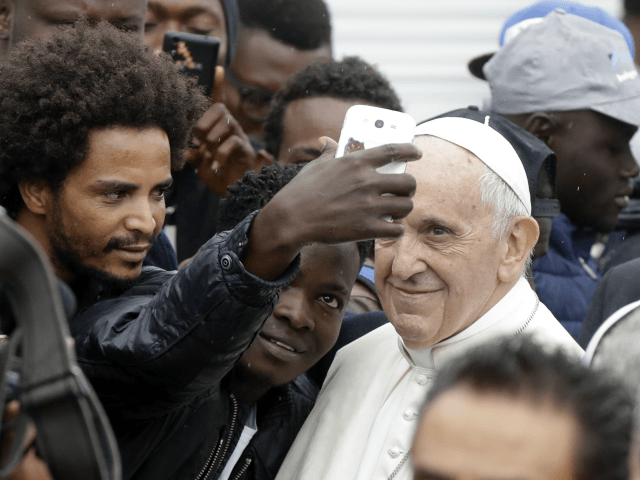The world’s oceans are threatened by “dangerous and forced migration, the scourge of various forms of criminal trafficking and the pollution of the seas,” said a Vatican representative at the international conference “Our Ocean, Our Legacy” Tuesday.
Archbishop Piero Pioppo, papal nuncio in Indonesia and the head of the Holy See’s delegation to the conference, said that the issue of oceans and seas is “important to the Holy See and to the Catholic Church.”
The concern of the Catholic Church for oceans is borne out in the “numerous initiatives” undertaken by the Church, Pioppo said, including “the various types of assistance offered to seafarers; supporting the development of fishing communities and the protection of their rights; the incessant work with and in favor of migrants in many countries; the activities with communities that are threatened by rising sea levels; as well as raising awareness about those initiatives that risk damaging the seabed.”
We “must address the threats to our oceans in a courageous and adequate way,” the archbishop said. Often, “the causes of these threats are found on land,” he said. “Think, for example, of the problems caused by the waste of chemical products and plastics.”
Last month, Pope Francis Pope Francis called on world leaders to clean up oceans threatened by plastic waste while underscoring the right of all peoples to clean drinking water.
“We cannot allow our seas and oceans to be littered by endless fields of floating plastic,” the pope said in a message on the fourth World Day of Prayer for the Care of Creation.
“Sadly, all too many efforts fail due to the lack of effective regulation and means of control, particularly with regard to the protection of marine areas beyond national confines,” he said.
The pontiff also declared that access “to safe drinkable water is a basic and universal human right” and lamented that for many it was “difficult if not impossible.”
“Our world owes a great social debt towards the poor who lack access to drinking water, because they are denied the right to a life consistent with their inalienable dignity,” he said.
The pope’s emphasis on political and secular issues such as climate change and immigration over Catholic moral teaching have elicited criticism from some observers, even within his own Jesuit order.
In early October, Jesuit Father James V. Schall, a prominent scholar who taught political science at Georgetown University for many years, wrote a searing essay in Crisis magazine suggesting that the pope has gotten his priorities wrong.
“Pope Bergoglio himself seems willing to talk about almost every subject but his own beliefs and record,” he wrote. And yet these are the questions that “seem most at issue.”
As an example, Schall cited the pope’s Letter on the World’s Day of Prayer for Creation, which focused on access “to clean water,” a topic that Schall suggests falls outside the specific mission of the Catholic Church.
“Christ walked on water, turned water into wine, helped a woman at a well draw it up, and was baptized with it in the Jordan,” Schall observed. “He never designed a dam to provide water for Nazareth or Jerusalem. He evidently assumed that men could eventually figure this task out without the need of revelation.”
“A pope can mention the problem of water availability or other such issues, but his is not the task to provide technical solutions even if he had a doctorate in water engineering,” he added.
More importantly, many people of good “will wonder why, if the pope can talk of clean water, he cannot talk about his own record or what he holds on issues that certainly do fall within his competency. These latter issues are what perplex people,” he said.
Follow Thomas D. Williams on Twitter Follow @tdwilliamsrome

COMMENTS
Please let us know if you're having issues with commenting.